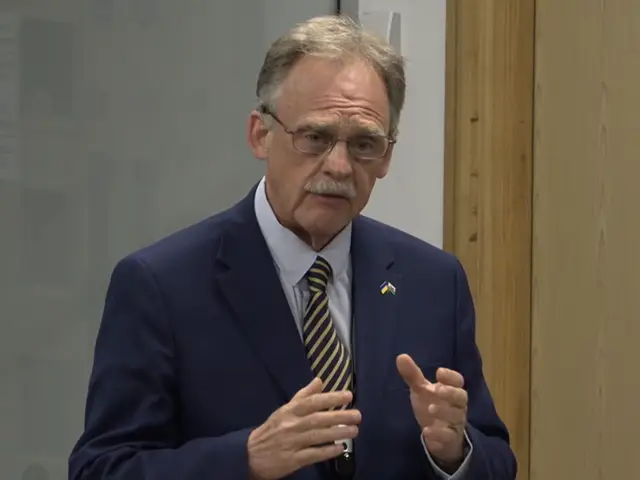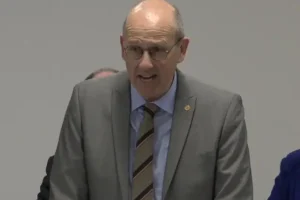CAMPAIGNERS warned it will be “impossible” to hold the Welsh Government to account on progress against its disabled people’s rights plan due to a lack of concrete targets.
Mark Isherwood, who chairs the Senedd’s cross-party group on disability, raised concerns that many of the long-term objectives in the draft ten-year plan lack firm commitments.
He said Natasha Hirst, who was part of ministers’ disability rights taskforce, pointed to a lack of funding to implement the plan as well as a scarcity of clear, robust targets.
Mr Isherwood also quoted Joe Powell, chief executive of All Wales People First, who said: “For this plan to succeed we need the appropriate investment into the infrastructure and services to make this aspiration a reality.
“We need clear targets about how we are going to achieve this. Without these, it is very difficult to see how the plan will make a difference to disabled people in Wales.”
The Conservative told the Senedd: “Damian Bridgeman, who chaired the disability rights taskforce’s housing and community working group, said the draft document was a smokescreen rather than a plan.
“He pointed to the absence of new money and a mechanism to track delivery of the action plan further, adding that, ‘disabled people have been reviewed to death, what we need is action – and there’s none of that here’.”
He said Mr Bridgeman described the plan as a “collection of vague intentions dressed up as progress”, with “no targets, no teeth and no real-world accountability”.
Mr Isherwood, who has campaigned on disability rights for decades, warned the plan lacks a commitment to enshrine the UN convention on the rights of disabled people into Welsh law.
The north Walian also warned the UK Government’s plans to cut benefits risk further disabling people in Wales by compounding poverty and exclusion.
During a statement on June 3, Jane Hutt described the plan as a landmark moment in the Welsh Government’s commitment to ensuring an inclusive and accessible society for all.
Wales’ social justice secretary said: “This plan is a ten-year blueprint for progress, designed to ensure its outcomes are realised through actions taken across government.”
Ms Hutt cautioned that UK Government welfare reforms risk overlooking the circumstances and needs of disabled people, and more so in Wales than some other parts of the UK.

She said the plan seeks to position Wales as a world leader in the social model of disability, which says people are disabled by barriers in society – not by their impairment or condition.
Ms Hutt urged organisations and disabled people to have their say by responding to a consultation on the draft plan, which runs until August 7.
Sioned Williams warned the plan has been a “long time coming”, with the taskforce set up after a 2021 report, entitled Locked out, into the impact of the pandemic on disabled people.
Ms Williams told the Senedd: “We must never forget that disabled people comprised 60% of deaths from Covid-19 in Wales, and many of those deaths were preventable and rooted in socioeconomic inequality.”

The Plaid Cymru politician stressed the importance of legally enforceable rights – “rights that can literally be the difference between life and death”.
Ms Williams warned planned welfare cuts cast a long, dark shadow over the plan, saying: “The removal of this vital support doesn’t simply reduce income, it rips away the safety net that many disabled people rely on to live with dignity.”
She called for assurances that disabled and neurodivergent people will no longer be detained in secure hospitals in Wales, as highlighted by the Stolen Lives campaign.
Jenny Rathbone supported efforts to embed the social model of disability because “it is society that needs to change, not the individual who happens to have an impairment”.
But she recognised that a huge amount of work still needs to be done.
Julie Morgan, a fellow Labour backbencher, said the plan clearly shows the Welsh Government’s commitment to making Wales an open, inclusive and accessible place.
But Conservative Laura Anne Jones warned the plan “falls short in many critical areas”, with disabled people still facing systemic barriers to work, transport and access to services.

She said: “With rising living costs and sweeping cuts to support services alongside welfare, this plan feels more like a statement of intent than a blueprint for real action.”
















